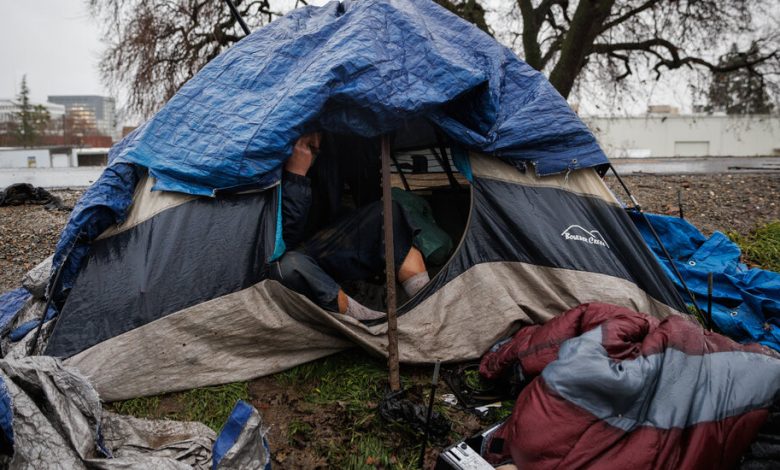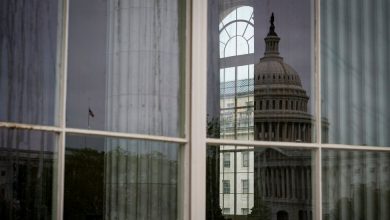California’s Ballot Measure on Mental Health Care Still Isn’t Decided. Why?

California has about 12 percent of the nation’s population but more than a quarter of America’s homeless people — 181,000-plus at last count.
There are many reasons for this outsize problem, including generations-old state laws that deinstitutionalized mentally ill people as well as high housing costs that have since priced tens of thousands out of shelter. But since the pandemic turned fentanyl abuse and tent camps into inescapable symptoms of a public health crisis, state policymakers have been under intense pressure to rethink California’s approach to behavioral health.
Last week, Californians voted on a key piece of that rethinking — a deeper focus on treatment and housing for homeless people with severe mental illnesses and substance use disorders. The ballot measure, called Proposition 1, was the product of months of work by Gov. Gavin Newsom to gather statewide support.
Polls suggested that Proposition 1 would be a slam-dunk. But so far, it is barely passing. Entering the week, the measure is hanging on with 50.5 percent of the vote and an estimated 2.5 million ballots left to count. So what happened?
Here’s what to know about Proposition 1 in California.
What is Proposition 1?
Placed on the ballot last year by state lawmakers and Mr. Newsom, Proposition 1 asks voters to dramatically expand treatment centers and supportive housing for people struggling with mental illness and addiction. The measure would authorize $6.38 billion in bonds to pay for facilities and housing and would amend the Mental Health Services Act, a 20-year-old state tax on millionaires, to shift about $140 million annually from counties to the state. The measure also would set aside about $1 billion to house homeless, mentally ill or addicted veterans.
What are the arguments for and against Proposition 1?
Proponents of Proposition 1 say it is key to restructuring California’s behavioral health system. One reason so many addicts and mentally ill people are on the street, they say, is that the state has an acute shortage of adult treatment beds. Proposition 1 would help house more than 11,000 sick people and help underwrite CARE Court, a new state program that would require people to enter treatment for certain psychotic disorders. The measure would explicitly extend a huge source of treatment dollars to homeless substance abusers. And, proponents say, Proposition 1 would lessen taxpayer spending on a population that is now largely being treated in jails.





